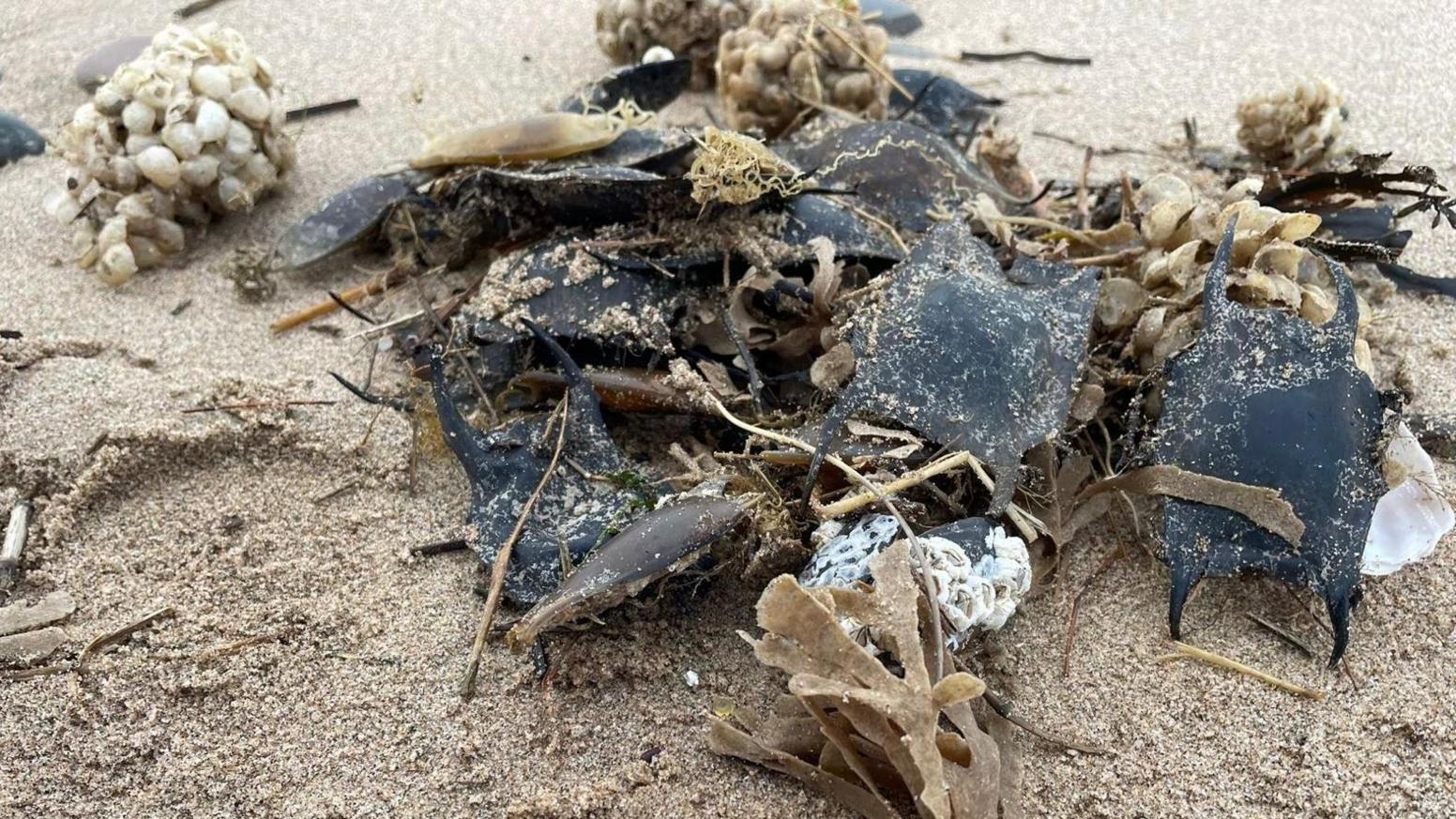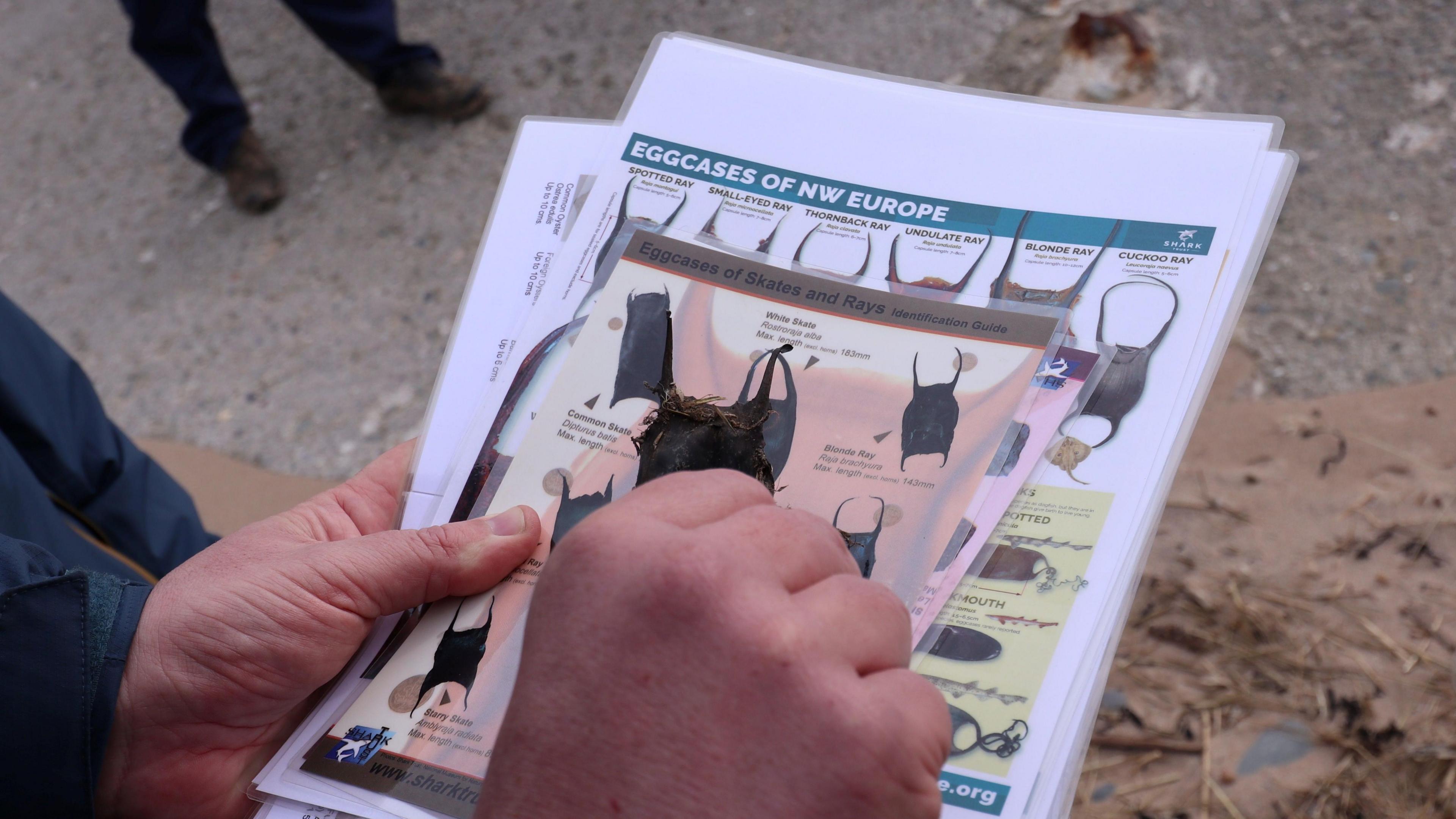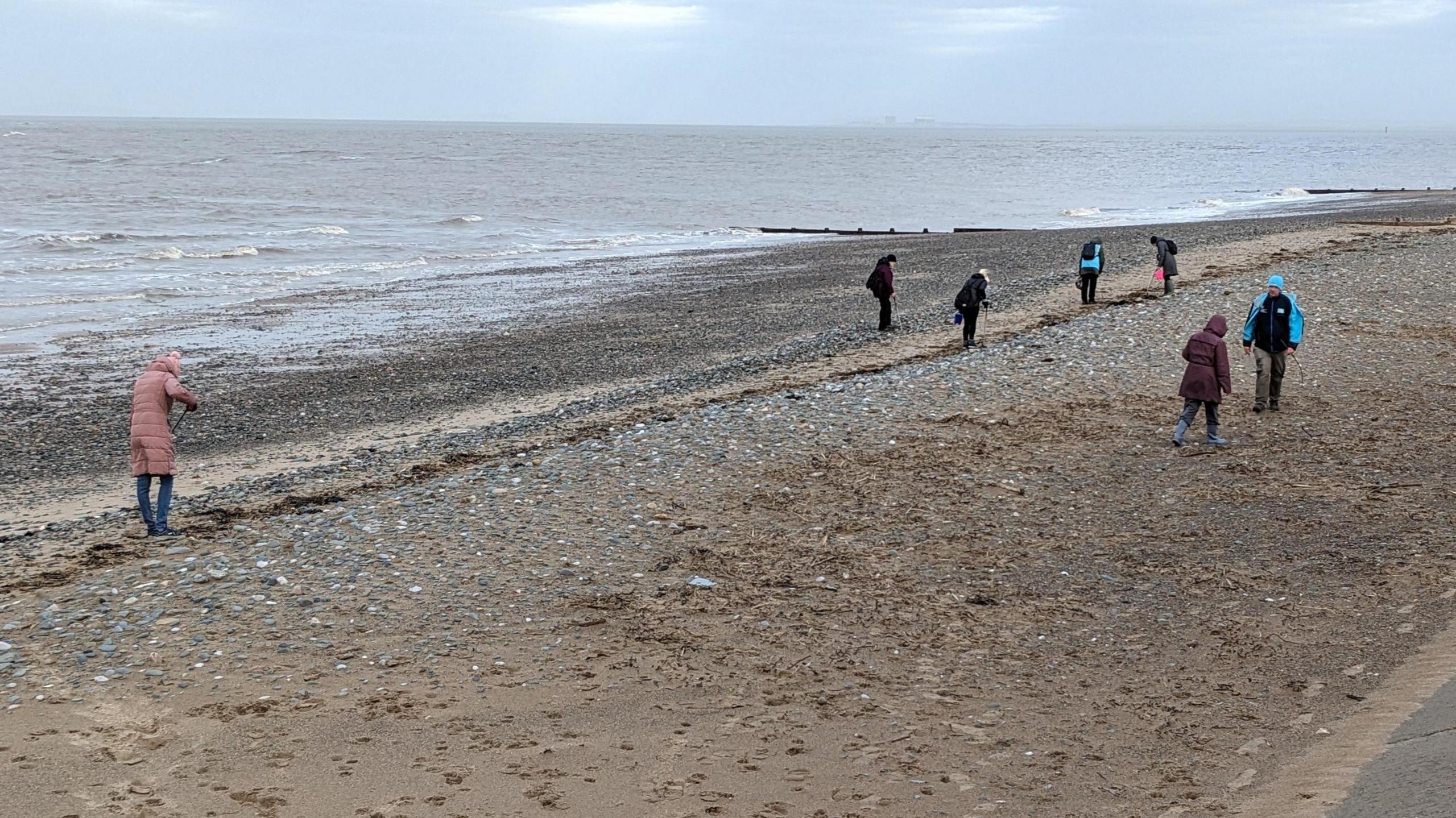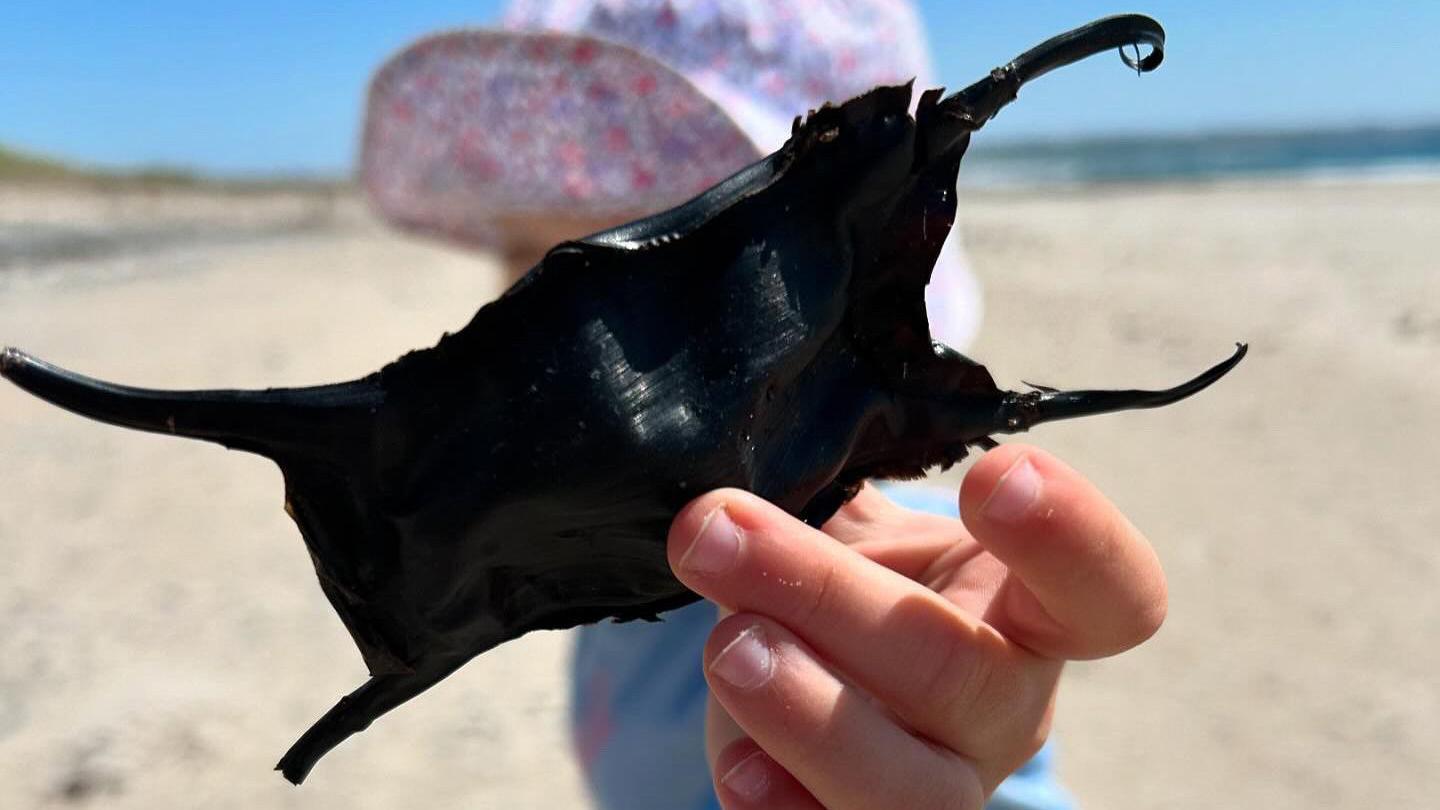Volunteers find 18,000 shark egg cases on beaches

Egg cases, including rays and catsharks, wash up at Morecambe Bay
- Published
Volunteers who survey shark eggs in Morecambe Bay counted nearly 18,000 egg cases last year.
Lancashire Wildlife Trust's The Bay Group have earned a national award for the findings, being recognised at the Marsh Volunteer Awards for Marine Conservation.
The volunteers search for old egg cases on the shoreline, take photographs of them, and upload them to the Shark Trust's website.
Alan Wright from Lancashire Wildlife Trust said: "I don't think people realise what we've got in the Irish Sea. We've got things like dolphins, porpoises, giant basking sharks, humpback whales."
"The Irish Sea is such an important place and we really need to protect it," he told BBC Radio Lancashire.
The cases protect the embryos of sharks and skates as they develop. Once empty, they often wash up on beaches.

The cases are compared against charts to categorise them.
The Morecambe Bay group found 30% of all egg cases across the UK last year.
The cases are rehydrated, categorised and counted - which helps scientists understand the population make up of our oceans.
The data showed that the small-spotted catshark and the thornback ray were the most commonly found by the group.

Volunteers go on the hunt for shark egg shells.
Rachel Glascott from the Bay Group said it was "great for [volunteers] to be recognised for the work that they do".
The Bay shared the Marsh Volunteer Award with Lincolnshire Wildlife Trust's beach clean volunteers.
Get in touch
Tell us which stories we should cover in Lancashire
Listen to the best of BBC Radio Lancashire on Sounds and follow BBC Lancashire on Facebook, external, X, external and Instagram, external. You can also send story ideas via Whatsapp to 0808 100 2230.
Related topics
More like this story
- Published16 April
